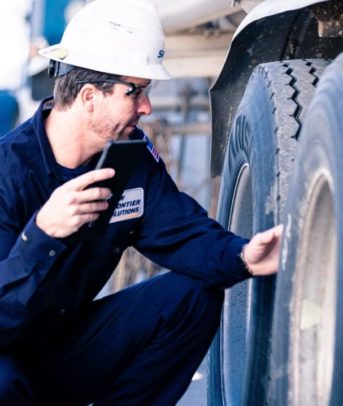By December 2017, all trucking fleets are required to fit an electronic logging device (ELD) within their vehicles in order to comply with new regulations from the Federal Motor Carrier Safety Administration (FMCSA). This mandate is aimed at improving safety and making it easier to ensure drivers are not breaking the law by driving for over 14 hours in a 24-hour period.
While many within the industry are on board with the FMCSA ELD mandate, not everyone has welcomed the initiative. Just last week, an amendment aimed at stalling the ELD mandate by 10 months was rejected by a House floor vote. The amendment, brought to a 2018 appropriations package, would have reduced funding for enforcement of the ELD mandate through fiscal 2018.
In June, the Supreme Court had dismissed a separate petition by the Owner-Operator Independent Drivers Association (OOIDA), a group representing over 150,000 small-business truckers, that claimed the ELD mandate amounts to warrantless surveillance of truckers. OOIDA filed the complaint after the U.S. Court of Appeals for the Seventh Circuit gave the green light to the FMCSA ELD mandate last October. “We believe that the Seventh Circuit erred in allowing warrantless searches of 3.5 million drivers, designed specifically to uncover evidence of criminal activity,” Jim Johnston, president and CEO of OOIDA, told FleetOwner.
Safety and Cost Benefits
The FMCSA ELD mandate requires trucking companies to replace the paper logs that have been traditionally used to document adherence to federal regulations. According to PNG Logistics, the FMCSA states that the use of ELDs will prevent 1,844 crashes, 562 injuries and save 26 lives annually by preventing exhausted drivers from sitting behind the wheel.
These statistics, however, are questioned by those opposing the rule. Norita Taylor, the director of public relations for OOIDA, questions the safety benefit of ELDs. “[ELDs] cannot determine compliance with hours of service regulations because it still requires manual input from the driver as to record of duty status (RODS),” says Taylor.
Beyond safety, the FMCSA believes that equipping the 500,000 U.S. trucking firms with electronic logs will eliminate more than $1.6 billion in paperwork costs for motor carriers and law enforcement agencies.
As the deadline fast approaches, the continued pushback indicates many trucking firms may be rushing to find an ELD solution, or an exception to the mandate. Those involved in the trucking industry will need to fully understand the impact the FMCSA ELD mandate will have on how their business works.
ELD Mandate Exemptions
One of the key things to establish for all trucking businesses is whether or not your vehicles qualify for one of the ELD mandate exemptions. There are three situations where fleets can operate without an ELD, but which must still account for activities in Hours of Service:
- Drivers whose vehicles have a manufacturing date before the year 2000.
- Drivers who use paper RODS for no more than eight days out of every 30-day period.
- Drivers who conduct drive-away-tow-away operations, where the vehicle being driven is the delivered commodity.
These three scenarios are relatively narrow, meaning that the vast majority of the trucking industry in the U.S. is going to be impacted by the new FMCSA ELD mandate. The impact on their businesses not only includes operational costs of outfitting the trucks but also managing data that is collected on the individual ELDs.
Impact of the ELD Mandate
One of the concerns raised with the new rules is the perceived lack of clarity. Taylor says it’s “hard to predict” what the impact of the mandate will be on the trucking industry “until it is actually in place and enforced.” She added that her organization is questioning “whether law enforcement will be prepared” for the new regulations.
How to Modernize Fleet Management
Get your free guide to improving fleet performance and profitability with in-cab mobile technology. Download Now
In a letter to President Trump earlier this month, truck driver Clifford Petersen said the problem is not with the ELDs themselves, but what happens when you combine new devices with outdated, inflexible regulations. The average truck driver’s work environment, which includes traffic jams and poor driving conditions need to be taken into consideration.
ELDs can, however, be viewed as a positive for the industry. Companies often struggle to attract truck drivers to the industry and can also struggle to ensure those drivers who do sign-up are happy to stay.
Providing access to technology that not only reduces driver’s paperwork but can also be used for personal use when off-duty is a perk that could help keep drivers trucking.
“Some question the benefits an ELD solution will offer the industry, but what we hear from fleets large and small is the ability to leverage a single device for business and personal engagement is incredibly valuable and well worth the investment,” explains Dain McCracken, senior business development manager at Samsung.
Samsung’s tablet-based ELD solutions allow fleet managers to create “dual personas” on the device, ensuring data separation and security. This offering allows drivers to have personal content available the minute they finish their shift.
Another key benefit of adopting tablet-based ELDs is that it provides a platform for other connected fleet integrations, including communicating with dispatch, receiving critical updates on delivery status and weather, as well as GPS navigation solutions.
Whether an organization supports the introduction of the ELD mandate or not, it is imperative companies educate themselves on how the ELDs work, what they mean for businesses, how they should go about adhering to the new rules and how they will be integrated into the overall transportation workflow.
Learn about Samsung’s tablet-based ELD solutions leveraging partnerships with industry leaders Omnitracs and PeopleNet. See what connected fleet solutions are available to help you meet company and driver needs.









